Normal Elementary Phonics Worksheets for Ages 5-6
17 filtered results
-
From - To
Unveil the wonders of reading and writing with our Normal Elementary Phonics Worksheets, meticulously crafted for children aged 5-6. Designed to foster a strong phonemic foundation, these worksheets blend fun with education, ensuring a delightful learning journey. Engaging activities and exercises focus on letter sounds, blending, and basic words, perfect for young learners embarking on their literacy adventure. With our worksheets, children will confidently navigate the building blocks of phonics, laying a solid groundwork for future reading success. Dive into the world of phonics and watch your child's reading skills blossom with Normal Elementary Phonics for Ages 5-6.
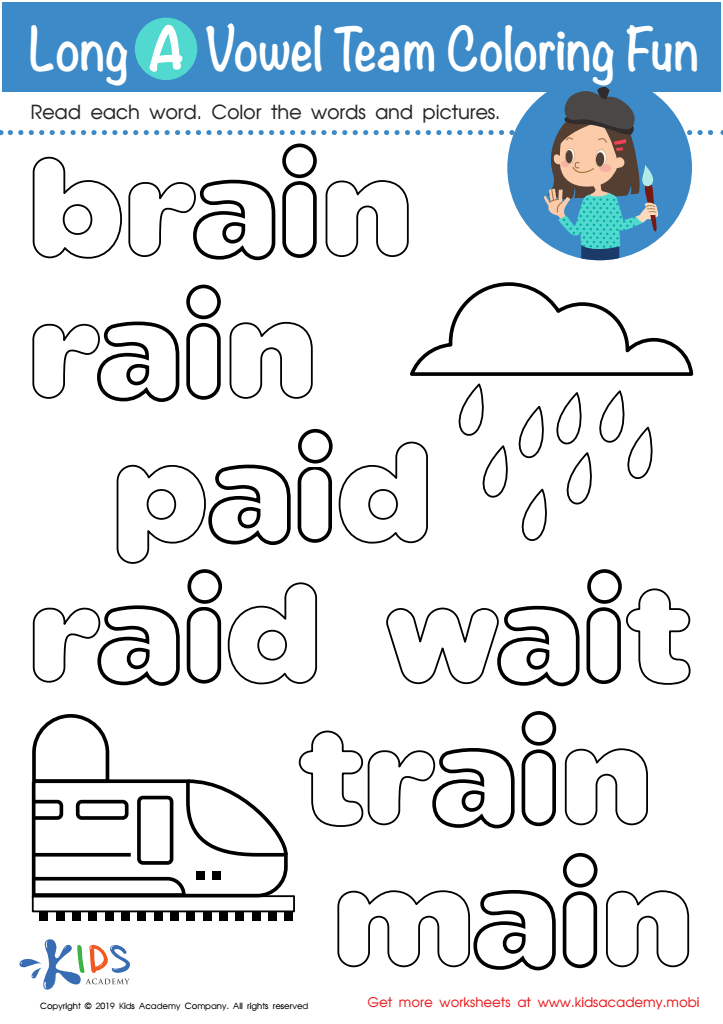

Long A Vowel Team Coloring Fun Worksheet
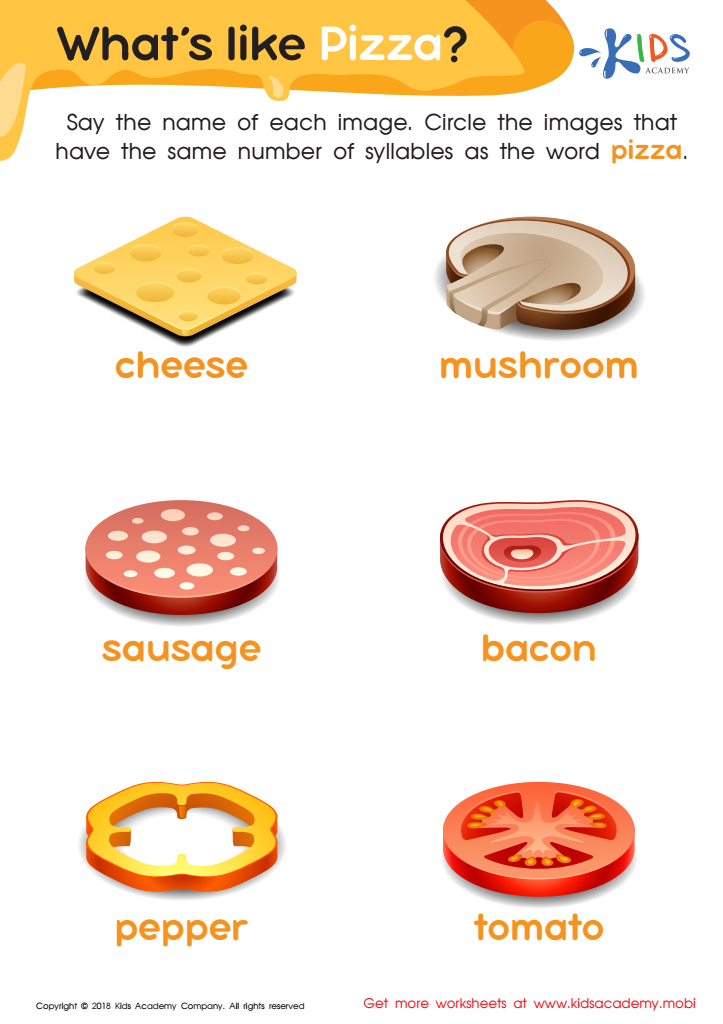

What's Like Pizza? Worksheet
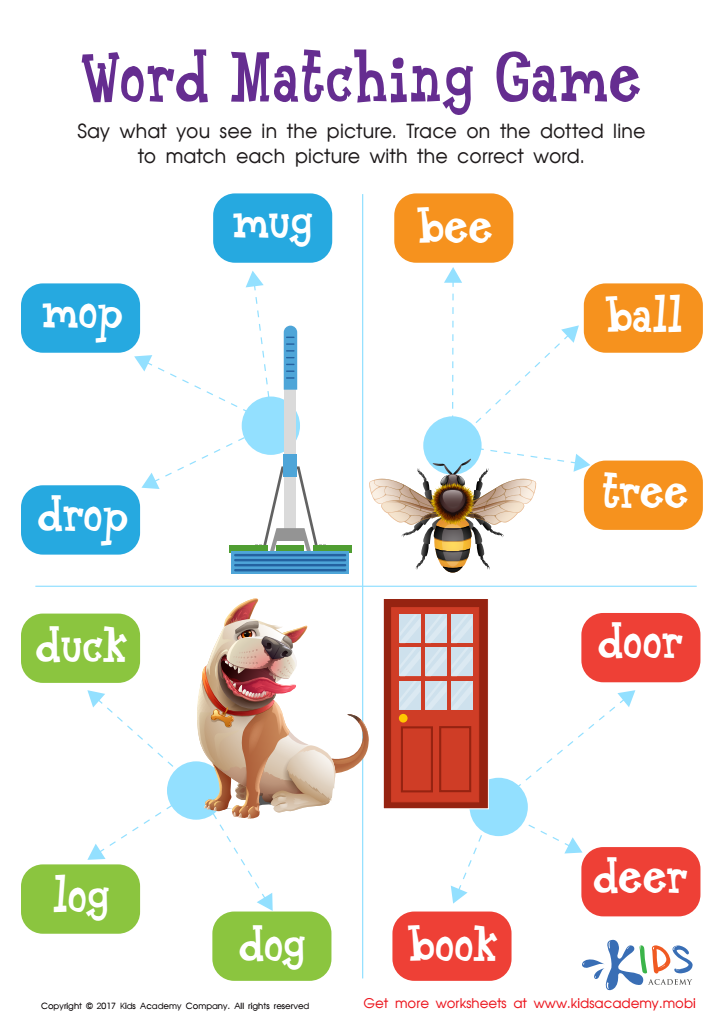

Word Matching Game Worksheet


Long and Short U Worksheet
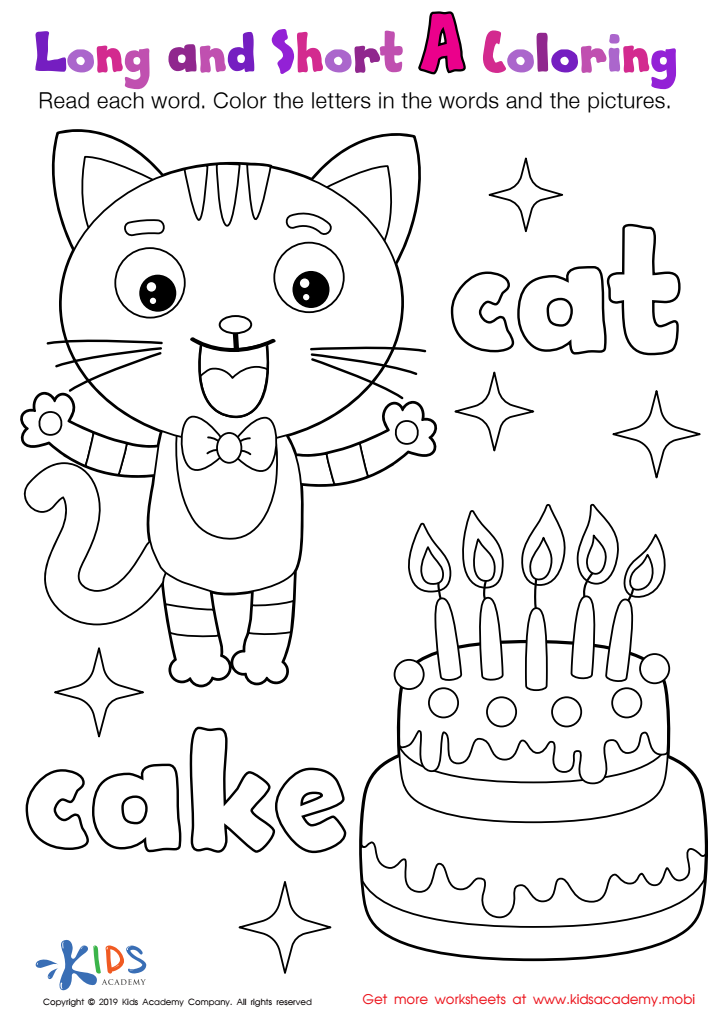

Long and Short A Worksheet
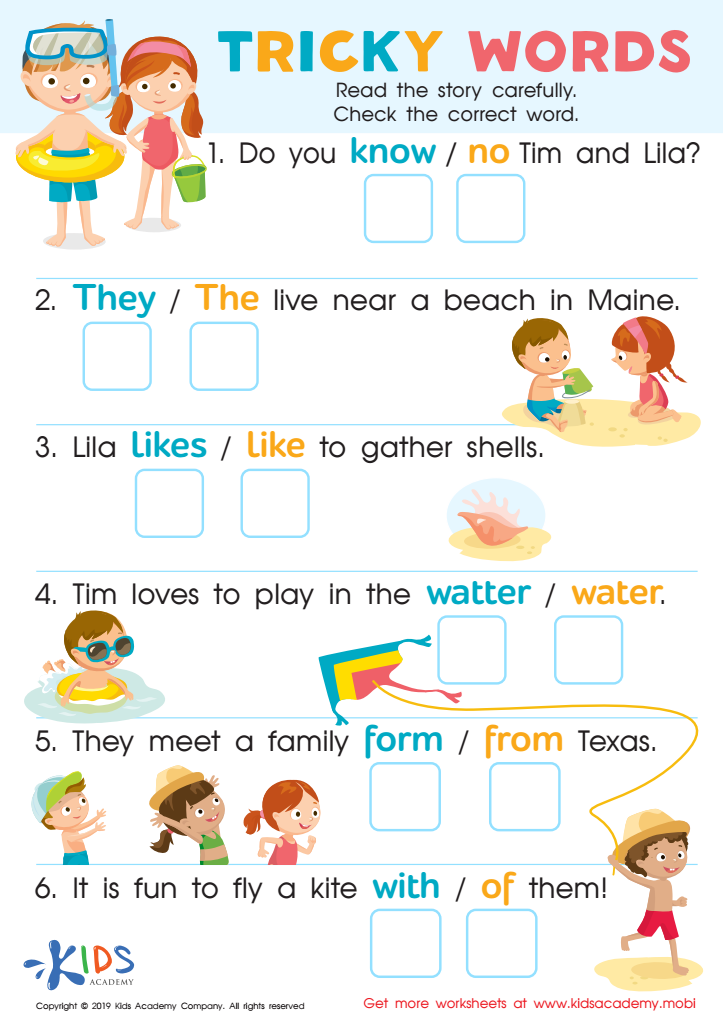

Tricky Words Worksheet
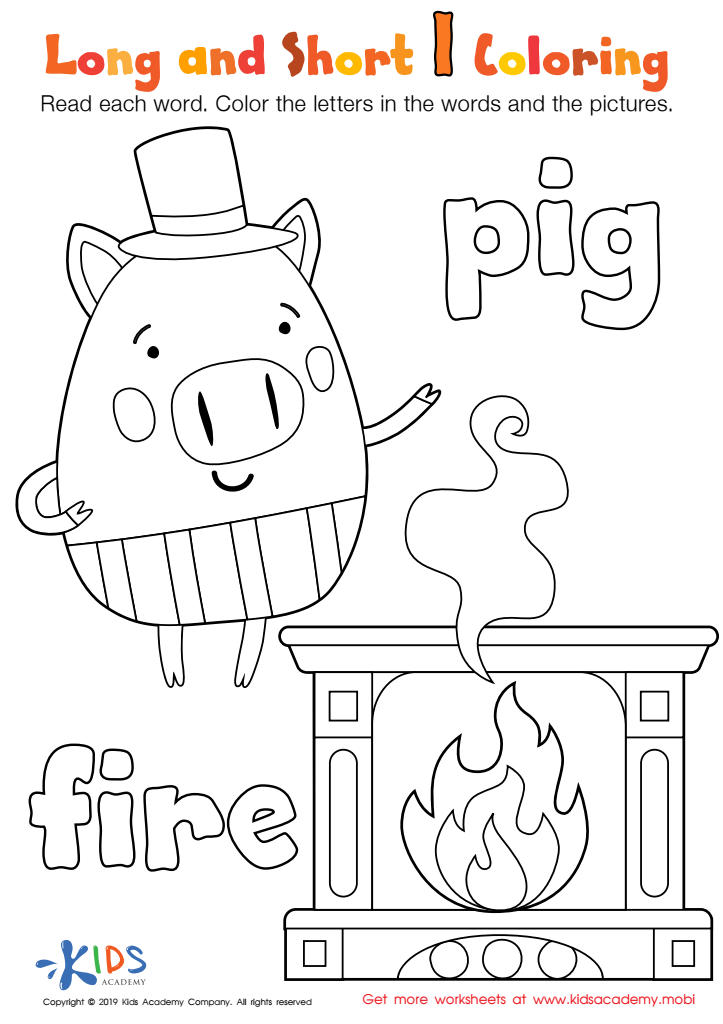

Long and Short I Worksheet
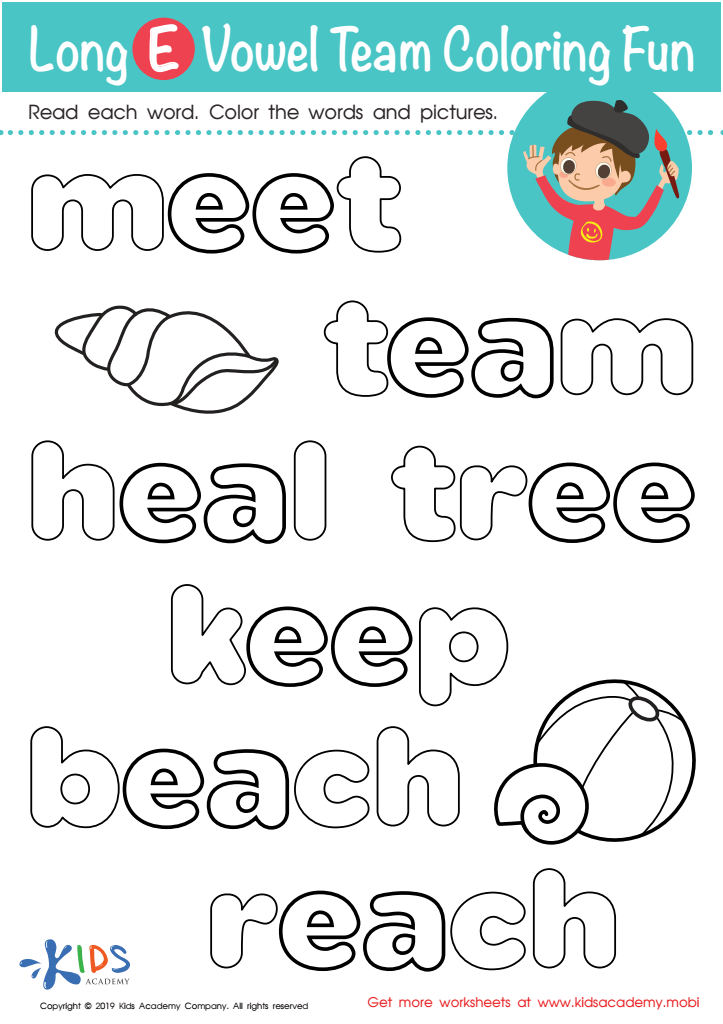

Long E Vowel Team Coloring Worksheet
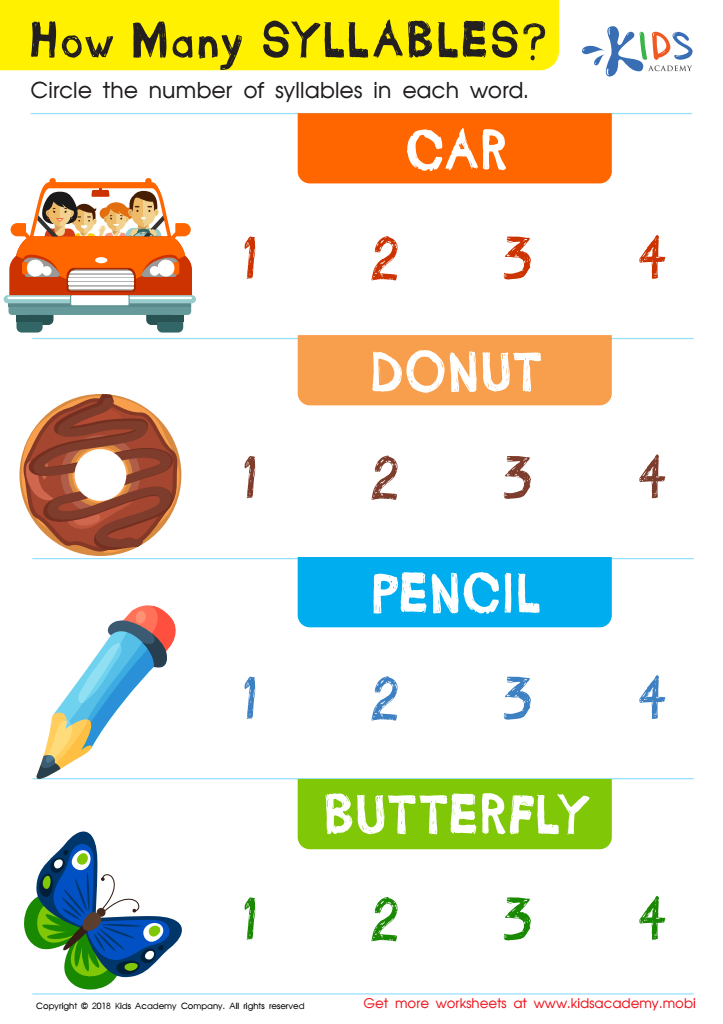

How Many Syllables? Worksheet
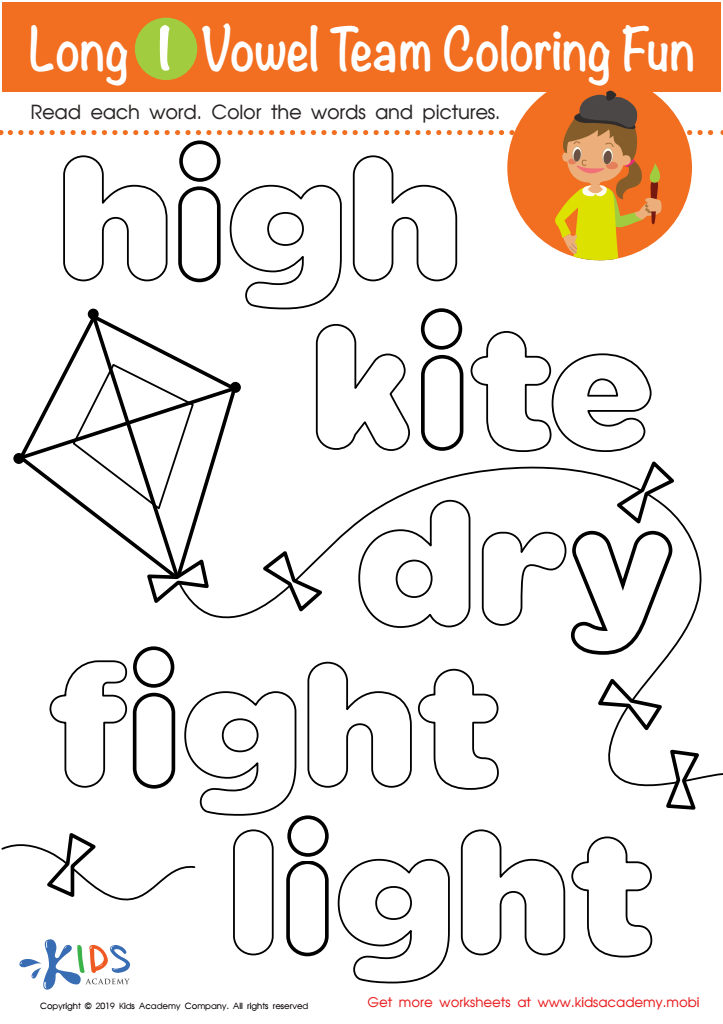

Long I Vowel Team Coloring Worksheet
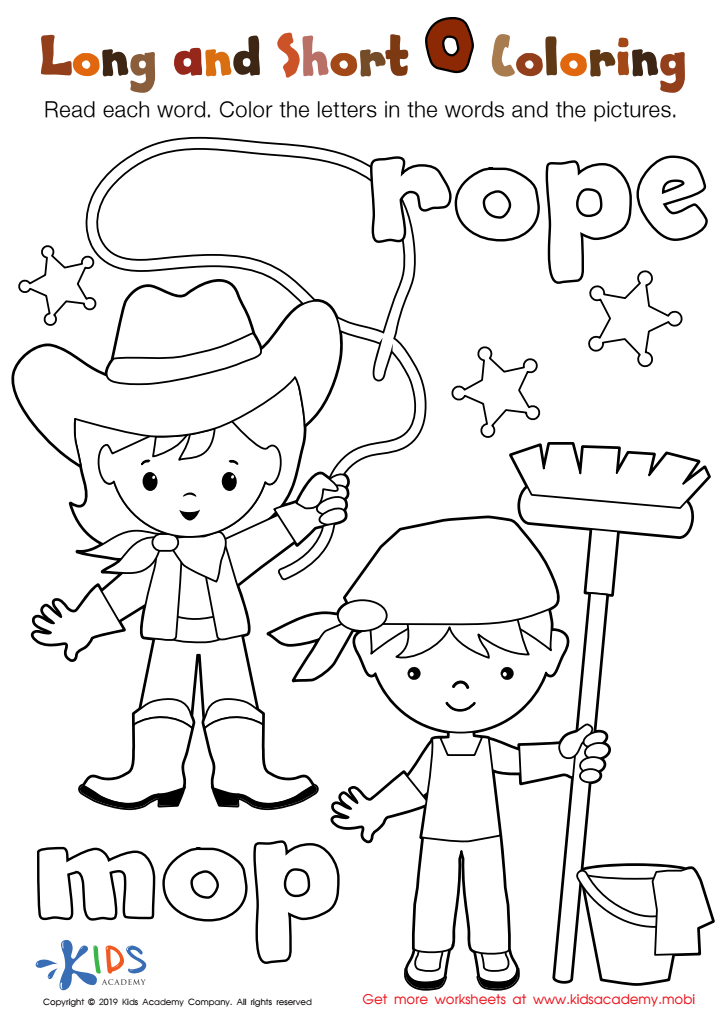

Long and Short O Worksheet
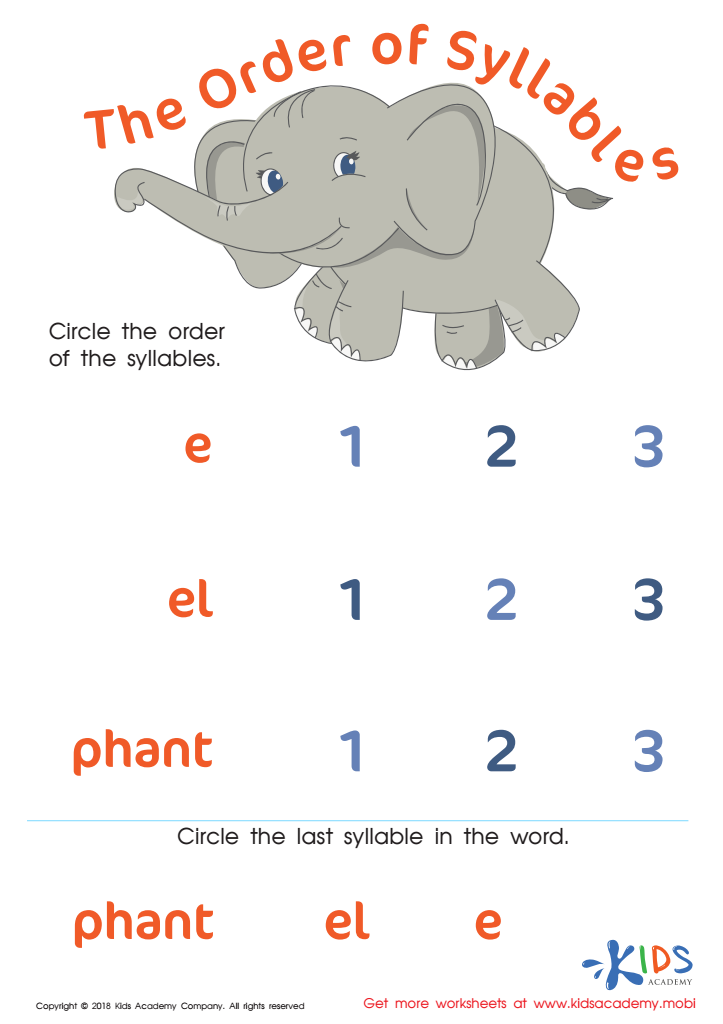

The Order of Syllables Worksheet


Long and Short E Worksheet
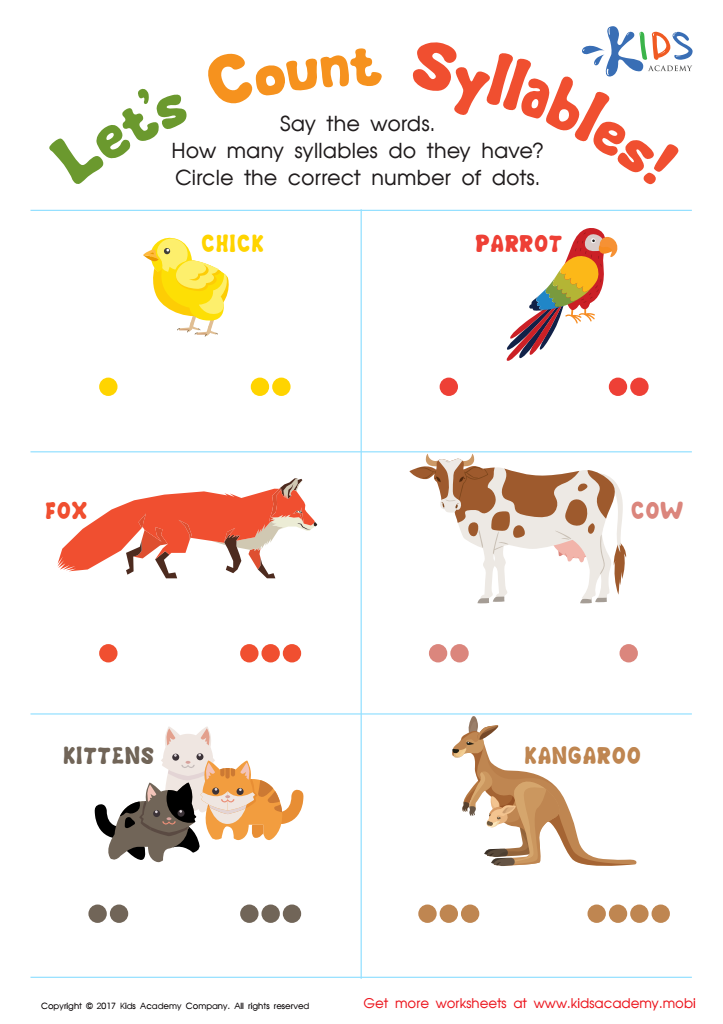

Lets Count Syllables Worksheet
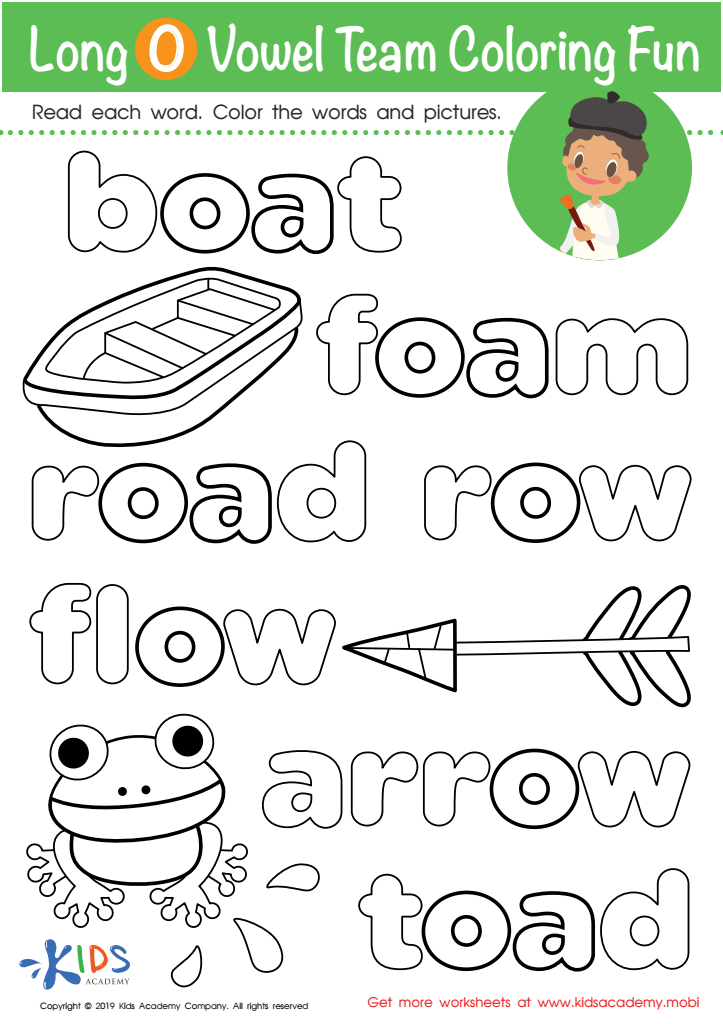

Long O Vowel Team Coloring Worksheet


Phonological Awareness: Assessment 1 Worksheet
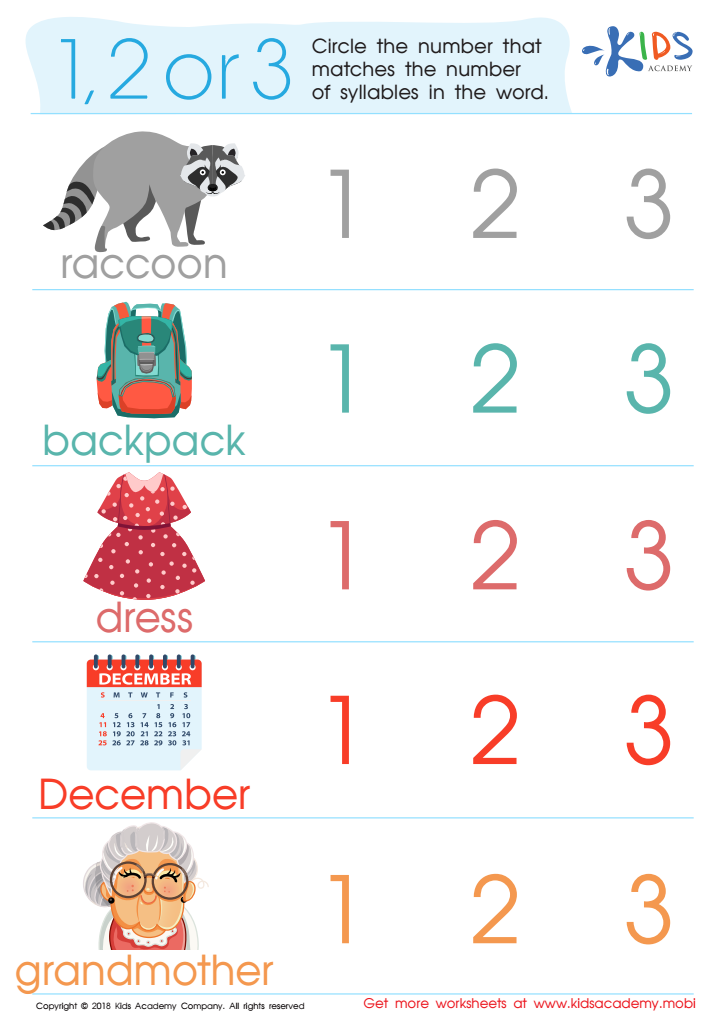

1, 2 or 3? Worksheet
Normal Elementary Phonics worksheets for Ages 5-6 are an invaluable tool for young learners beginning their reading journey. At this critical age, children are developing foundational skills that will support their literacy for years to come. These worksheets are specifically designed to cater to the learning needs and abilities of 5-6-year-olds, making them an essential part of early education.
The utility of Normal Elementary Phonics worksheets lies in their targeted approach. They focus on the basic phonetic principles, helping children understand the relationship between letters and sounds—an essential step towards fluent reading and clear pronunciation. By engaging with these worksheets, children not only learn to recognize letters but also start to decode words, paving the way for reading success.
Furthermore, the worksheets are structured to be both educational and entertaining. They incorporate a variety of activities, such as matching games, fill-in-the-blanks, and simple puzzles, which sustain the interest of young learners. This blend of fun and learning ensures that children remain engaged and motivated throughout their phonics practice.
In addition to fostering reading skills, Normal Elementary Phonics worksheets for Ages 5-6 encourage independent learning. As children complete these activities, they gain confidence in their abilities to tackle new challenges, setting a positive foundation for lifelong learning.
 Assign to My Students
Assign to My Students















